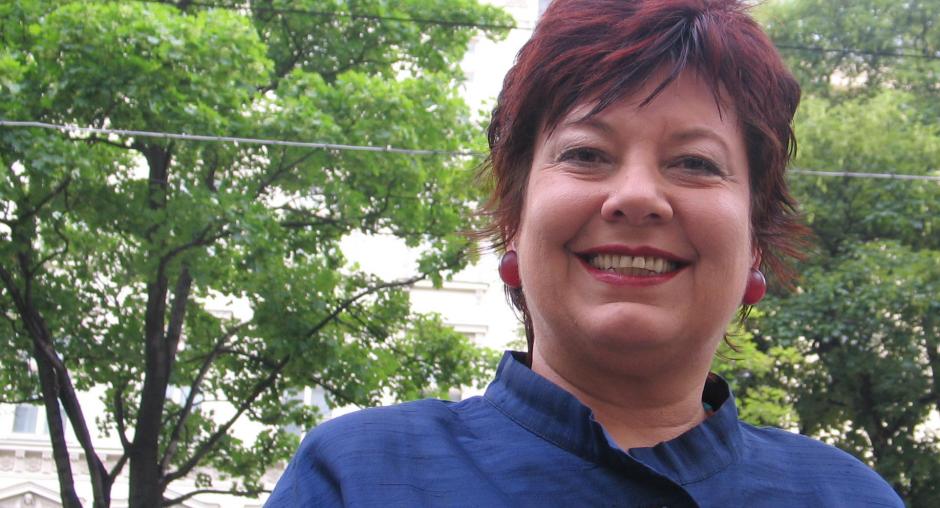OSCE Special Representative calls on financial institutions to help prevent human trafficking

PARIS, 28 April 2005 - The OSCE Special Representative on Combating Trafficking in Human Beings, Helga Konrad, called upon financial institutions such as the World Bank and the International Monetary Fund on Thursday to develop comprehensive poverty-reduction strategies that help to reduce trafficking in human beings.
Addressing a conference in Paris on Violence Against Women, she said the widespread disenfranchisement of women and the "feminisation of poverty" were key factors forcing women to seek work abroad and making many of them vulnerable to trafficking.
"It is mainly poverty as well as political instability which prepare the ground for human trafficking - not only the international sex trade but also trafficking for forced and bonded labour, trafficking in children, forced marriages, as well as illicit trade in organs," Konrad said.
The two-day conference, organized by the French Government in co-operation with the Slovenian OSCE Chairmanship and the UN Secretariat, is addressing domestic violence, sexual violence in armed conflicts and the economic exploitation of women.
Konrad emphasised that even well-intended economic reform programs could have harmful effects on entire societies and called for more socially balanced economic growth strategies.
"Harsh economic reform often liquidates entire sectors of the economy," she said. "The terms of structural adjustment loans often require the cessation of much-needed social services. Economic programmes often exacerbate existing problems."
"It is high time for governments and international financiers to recognize that public spending to protect the most vulnerable members of society is an investment rather than a burden on the public purse," the OSCE Special Representative concluded.
Konrad said violations of women's rights were still very much the rule, not the exception, in the 21st century.
"Trafficking is in many ways not recognised as a blatant and horrendous violation of the most fundamental human rights. On the contrary: victims of human trafficking continue to be treated as criminal suspects, and deported. This is no longer acceptable," she added.
